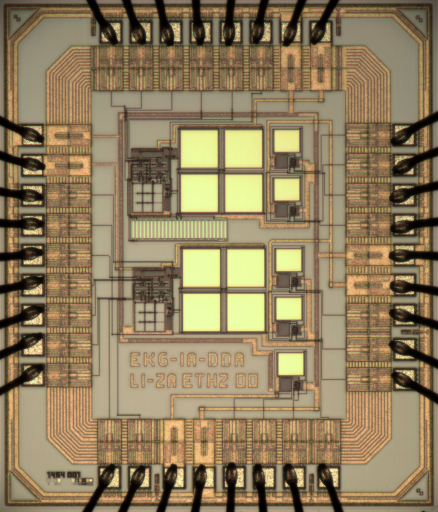The IIS Chip Gallery
EKG (2000)

by

| Application | Biomedical |
| Technology | 600 |
| Manufacturer | austriamicrosystems |
| Type | Student Project |
| Voltage | 3.3 V |
Reliable long-term monitoring of physiological parameters depends on the ability to use miniaturized devices which are less sensitive to electromagnetic interference and consume a minimum of power during their period of operation. Fully integrated transducers are a convenient solution for this problem. They are small enough to be attached close to the sensor and they can transmit digitized data to the appropriate monitoring setup nearby.
Analog frontends are one of the key building blocks in medical transducers. Sensor signals must be read out with sufficient resolution while keeping current consumption low. Conventional medical instrumentation amplifiers incorporate two or three opamps to achieve a sufficiently high input range at the expense of power. However, signal analysis shows that differential-difference amplifiers (DDA) can provide the same functionality at lower power consumption.
A 26 dB 3 V DDA-based instrumentation amplifier has been implemented in a 0.6 um two-metal CMOS process and has been tested successfully. The measured equivalent input noise is less than 2uV which means that ECG signals as low as 5 uV can be detected. The current consumption is below 90 uA.